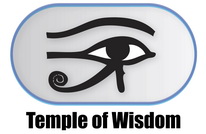
According to the Torah and Talmud, Moses, the great prophet and leader of the Israelites, faced many disagreements with his people during their journey through the wilderness after their exodus from Egypt. These disagreements stemmed from a variety of issues, including religious beliefs, morality, and leadership. In this essay, I will explore the main issues that Moses disagreed with the Israelites according to the Torah and Talmud, and how he resolved them.
One of the primary issues that Moses faced was the Israelites’ tendency to fall into idolatry. Despite witnessing the miracles of God firsthand, many Israelites were easily swayed by the idolatrous practices of the neighboring nations. For instance, the Golden Calf incident, which is recounted in Exodus 32, describes how Moses ascended Mount Sinai to receive the Ten Commandments from God, while the Israelites grew restless and impatient. They convinced Aaron, Moses’ brother, to fashion a golden calf for them to worship in Moses’ absence, and when Moses returned and saw the people’s transgression, he shattered the tablets of the law in anger.
Moses’ reaction to the Golden Calf incident highlights the seriousness with which he viewed the Israelites’ idolatrous tendencies. He immediately took action to punish those who had sinned and to re-establish the authority of the law. Later on, he set up the Tabernacle as a central place of worship, emphasizing the importance of monotheism and a single, centralized sanctuary for worship.
Another issue that Moses faced was the Israelites’ lack of trust in God’s provision. Despite the numerous miracles that God had performed to provide for the Israelites, including the manna from heaven and the water from the rock, the people still grumbled and complained about their living conditions. In Numbers 11, for example, the Israelites expressed their dissatisfaction with the manna and longed for the meat they had eaten in Egypt. Moses became frustrated with their lack of faith and complained to God, who responded by giving the people quail to eat, but also sent a plague to punish their disobedience.
Moses’ response to the Israelites’ lack of faith was to remind them of God’s faithfulness and provision. He taught them to trust in God’s promises and to rely on him for their needs. He also encouraged them to remember the past miracles that God had performed on their behalf, such as the crossing of the Red Sea and the defeat of the Amalekites. Through his leadership, Moses sought to instill in the Israelites a sense of trust in God and a willingness to follow him wherever he led.
A third issue that Moses faced was the Israelites’ tendency to rebel against his authority. Despite his position as God’s chosen leader, many Israelites questioned his decisions and challenged his authority. In Numbers 12, for example, Moses’ own siblings, Aaron and Miriam, spoke out against him, criticizing his marriage to a Cushite woman. God intervened to defend Moses, punishing Miriam with leprosy and reaffirming Moses’ leadership position.
Moses responded to the Israelites’ rebellion by maintaining his steadfast commitment to God’s commands and by continuing to lead with humility and grace. He acknowledged the Israelites’ concerns and listened to their grievances, but ultimately remained faithful to God’s will. Through his example, Moses taught the Israelites the importance of submitting to God-ordained authority and trusting in God’s plan for their lives.
A fourth issue that Moses faced was the Israelites’ moral and ethical shortcomings. Despite God’s commands to live holy lives and to love their neighbors as themselves, the Israelites often fell short in their behavior. In Leviticus 19, for example, God outlines a series of moral laws for the Israelites to follow, including commands to honor parents, not to steal, lie, or commit adultery, and to love their neighbors as themselves. However, the Israelites struggled to uphold these laws, and Moses had to constantly remind them of their obligations to God and to one another.
Moses responded to the Israelites’ moral failings by emphasizing the importance of obedience to God’s commands and by instituting strict punishments for those who broke the law. He also established a system of judges and leaders to help enforce the law and to ensure justice was done. Through his leadership, Moses sought to uphold the moral standards that God had set for the Israelites and to promote righteousness and justice in the community.
A final issue that Moses faced was the Israelites’ reluctance to enter the Promised Land. Despite God’s promise to give them the land of Canaan, the Israelites were afraid of the inhabitants and doubted their ability to conquer the territory. This lack of faith led to a period of wandering in the wilderness, as God punished the Israelites for their disobedience and lack of trust.
Moses responded to the Israelites’ fear by reminding them of God’s promises and encouraging them to trust in his provision. He also appointed Joshua as his successor and led the people in a series of battles against the Canaanites to demonstrate God’s faithfulness and power. Through his leadership, Moses taught the Israelites the importance of faith and obedience in fulfilling God’s promises.
In conclusion, according to the Torah and Talmud, Moses faced many disagreements with the Israelites during their journey through the wilderness. These disagreements centered around issues such as idolatry, lack of trust in God’s provision, rebellion against Moses’ authority, moral and ethical shortcomings, and reluctance to enter the Promised Land. Despite these challenges, Moses remained steadfast in his commitment to God’s will and to the well-being of the Israelites. Through his leadership, he sought to instill in the Israelites a sense of faith and obedience to God’s commands, and to promote righteousness and justice in the community.







